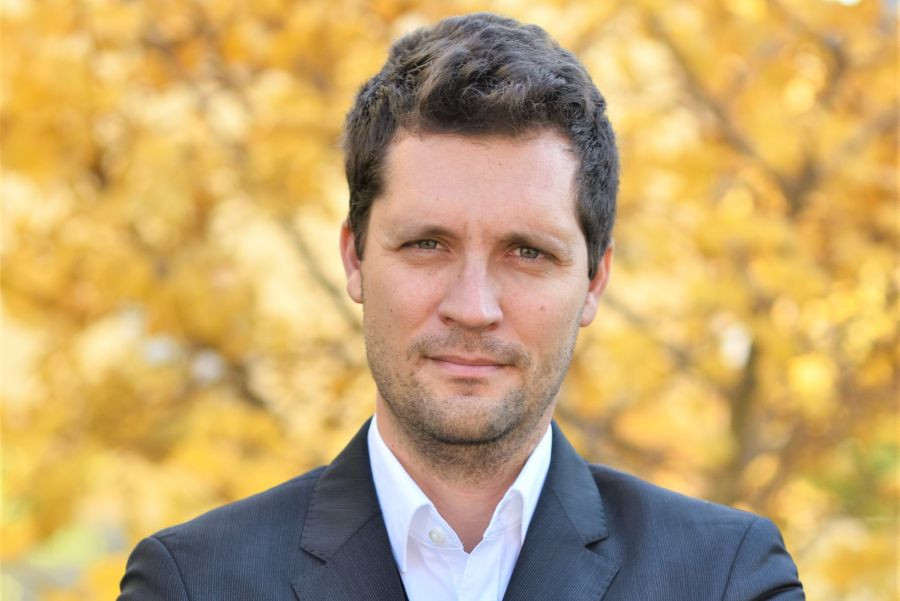Dr Miha Mlakar: a scientist connecting artificial intelligence with sport
He is head of the Agents Group in the Department of Intelligent Systems at the Jožef Stefan Institute, and explains his work as follows: »Our main focus is on applied research, or how to apply artificial intelligence methods to practical problems of businesses. We, for example, cooperate with companies Gorenje and Unior in the automated analysis of (semi-finished) products on the production line.« The group’s objective is to develop new methods of working and living. »We are now developing a conversational agent to help people deal with stress, anxiety and depression. However, we would also like to expand our cooperation to as many companies as possible in order to connect their problems with our expertise, thus helping them increase their added value.«
Data processing and sport
Mlakar has always been fascinated by numbers, and with his experience of being a professional tennis player and coach, he is now as a scientist focused on establishing links between data science and sport. As this is a really novel approach, he is interested in learning how it works in practice.
»I apply my knowledge of artificial intelligence and data processing to sport, where many of these approaches are still unique. As a former professional player I have the advantage of knowing both aspects really well, i.e. the technical and the domain side. I can thus solve problems and focus on issues that are later used by players or coaches to improve their performance. In practice, we deal with large quantities of data on individual players. I search for hidden data patterns on whose basis I am able to advise players how to improve their game or, if the data refer to the opponent, which tactic to employ against them,« added Mlakar.
He works with a number of professional tennis players but, for the reasons of confidentiality, cannot disclose all their names. »I can, however, tell you that we work with Alexander Zverev, Naomi Osaka, and Simona Halep, and that we are currently in talks with Stefanos Tsitsipas for the next season.«
Mlakar previously worked with the world’s top players, Serena Williams and Novak Djoković. His task and that of the data processing team is to assist coaches by providing objective advice on what needs improvement. »This enables coaches to prepare their players in the best possible way. For every match we also analyse the opponent’s data to establish what our player must pay special attention to, what the opponent’s weak spots are and how to turn those weak spots to our advantage.«
Analytics and sport
As an excellent tennis player and coach, and former captain of the Slovenian Davis Cup team, Mlakar specialises in connecting tennis with artificial intelligence, but his interests go beyond this. »I am also interested in analysing other sports, and I read a lot about analytical achievements in other sports, so that I closely follow the developments in my research area. In the future I will definitely analyse data for other sports, since the fundamental concepts are similar, you only need to ask the right questions to identify the factors important for your answers. You then translate them into numbers using the right method. I think that analysis is becoming increasingly more recognised and significant in all sports, which means that we will see even more analytical work in the future. There are only minor differences between teams, so even the slightest improvement matters.«
Miha Mlakar is thus active in many areas. »Yes, that’s true, I have many interests and sometimes not enough time for proper sleep. But if your work makes you happy, then it isn’t ‘work’. My biggest problem is that the day only has 24 hours,« he stresses, and goes on to say that some things overlap, and, while he develops his knowledge of artificial intelligence at the Jožef Stefan Institute, at the same time he applies this knowledge to other areas. »Of course, credit for my work also goes to my family, who has always supported me and made all this possible.«
Author: Polona Prešeren
Similar articles
-
Alpina’s I feel Slovenia hiking boot
-
Elan showcased the first fully functional folding all-mountain carving skis in the world
-
The COVID-19 pandemic has created a new reality
-
Dr Miha Mlakar: a scientist connecting artificial intelligence with sport
-
International Research Centre on Artificial Intelligence in Ljubljana
-
The innovative spirit of Slovenian youth - My company project
-
Slovenia – the only country with a zero waste capital city, zero waste hotel and zero waste events


